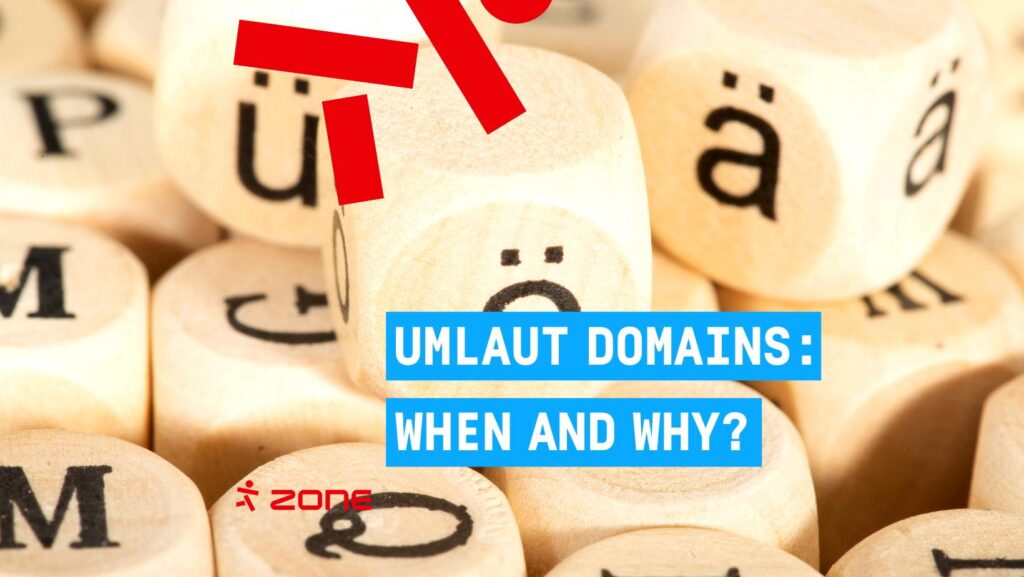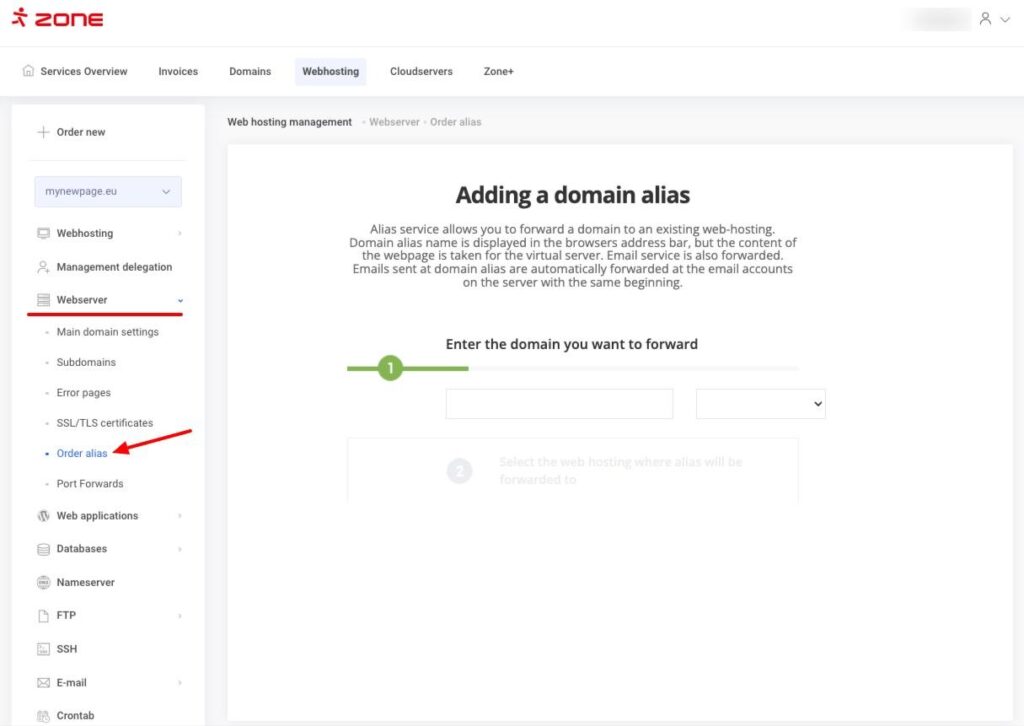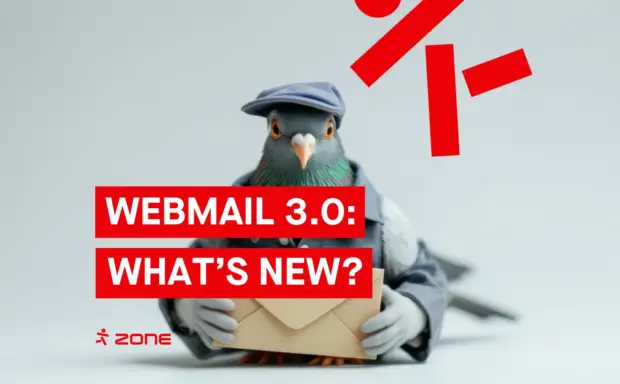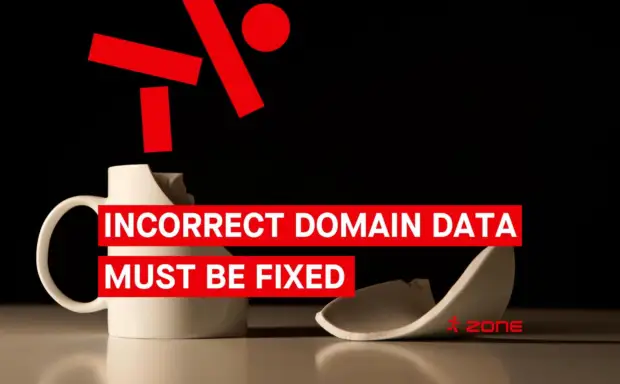This blog post is more than 14 months old and may be out of date.
In today’s digital world, domain names are cornerstones of brand identity. Your domain name is the first thing a potential customer sees about you online. We understand how important it is for businesses to ensure that their domain name matches their brand.

For as long as 15 years, we have been offering the possibility to register domains matching brand names exactly, including those of clients whose business names contain letters with umlauts or other special international characters. In this article, we will review everything related to this topic as a reminder.
Today, companies can register their domain names using the international alphabet (also known as the Internationalized Domain Name – IDN), meaning you can use diacritic letters and other special characters. This can be a great advantage, as it allows the domain name to be more closely aligned with the company’s actual brand name. However, there are a number of challenges and limitations to using IDNs, especially concerning digital marketing and advertising. Let’s take a closer look at when and why companies should consider using IDNs, what their advantages and disadvantages are and how a domain alias solution can help overcome these limitations.
When is an IDN necessary?
IDNs are domain names that contain special characters and characters not supported by traditional ASCII-based domains. While standard domains consist only of Latin letters and numbers, IDN domains also support special characters such as diacritic letters (“ä”, “ö”, “ü”) or other symbols that appear in different languages (e.g. Cyrillic).
IDNs can be great for the local market, as they allow businesses to use their exact brand names in the relevant language and culture. However, if you are targeting an international audience or advertising on global platforms, you should be aware that IDNs may have certain restrictions. In this case, it is advisable to use aliases or ASCII-based domain names to ensure that the domain name is easy to use in all markets.
Companies and organisations operating in markets using special characters should consider using IDNs as many names of businesses and institutions contain diacritic letters. This would help avoid potential problems for customers accessing their websites. For example, take “Jäätelötehdas“ (Ice Cream Factory) in Finland – their web address should correspond to the real name of the organisation, so it would make sense to register their domain as jäätelötehdas.fi.
Why is this important?
- Local marketing: If your company name contains diacritic letters, it seems only natural that your web address should contain them as well. This ensures brand authenticity and meets customer expectations.
- Brand consistency: The domain name should reflect the real name of the company. It can create confusion and distort brand perception if your advertisements say “Jäätelötehdas” but your web address is “jaatelotehdas.fi”.
- SEO and user experience: Although diacritic letters have a limited impact on search engine optimisation (SEO), they can still affect the performance of local search results. Also, users searching by the exact name of your brand may be confused if your domain name does not match the brand name.
Challenges in using IDNs
While IDNs may seem like an ideal solution for brand name accuracy, they have various limitations and challenges that should be considered before using them. Below are some of the main drawbacks of IDNs:
- Limited platform compatibility
IDNs may not be fully supported by all platforms. For example, some social media platforms, such as Facebook and LinkedIn, are unable to display IDNs correctly. Instead, they display the domain name in Punycode form, which is machine-readable code.
- Problem with Punycode
Punycode is an encoding standard that converts non-standard character domain names into ASCII to be used on the internet. For example, a domain name jäätelötehdas.fi is converted to Punycode as xn--jteltehdas-q5aa1v.fi. Such a domain name is not human-readable and can be confusing in adverts, as consumers may not understand that it is the same website.
- Challenges in marketing and advertising
IDNs can be useful in TV and print media advertising, but only if users understand that the diacritic letters must be entered correctly. This can reduce brand appeal, especially in an international context where diacritic letters are not as easy to type or where character support is limited.
- Support for emails and contact forms
Another problem is the use of IDNs in email addresses. Although most email service providers support IDNs, there may still be cases where international email clients do not support diacritic letters in domain names. This may prevent customers from contacting your company by email.
Solution: domain alias

While IDNs may have various limitations, we recommend you consider using them with domain aliases. This allows businesses to register several different domains, all pointing to the same website. The possibility of using a domain alias comes with all our web hosting packages at no extra charge.
How does a domain alias resolve the problem? A domain alias allows you to have both an IDN and a regular ASCII domain pointing to the same website. This way, customers can reach your website regardless of whether they use diacritic letters or not. This solution also helps avoid advertising problems, as it is easy to use the domain name on the radio or in print media without creating confusion.
The use of domain aliases does not harm the visibility of your website in search engines. Correctly configured domain aliases do not cause “duplicate content” issues in Google, as search engines detect that all aliases point to the same website. Also, alias domains do not harm your SEO ranking, as all links and search results are ultimately directed to the same website.
If you are interested in registering a domain or using an alias domain, please contact us and we will find a suitable solution together.
Post navigation
Popular posts

.NO domain now at Zone – is your business ready for the Norwegian market?

Zone Webmail 3.0: New features that make email management easier than ever

Still the rightful owner of your domain? ICANN’s new rule means it’s time to double-check
